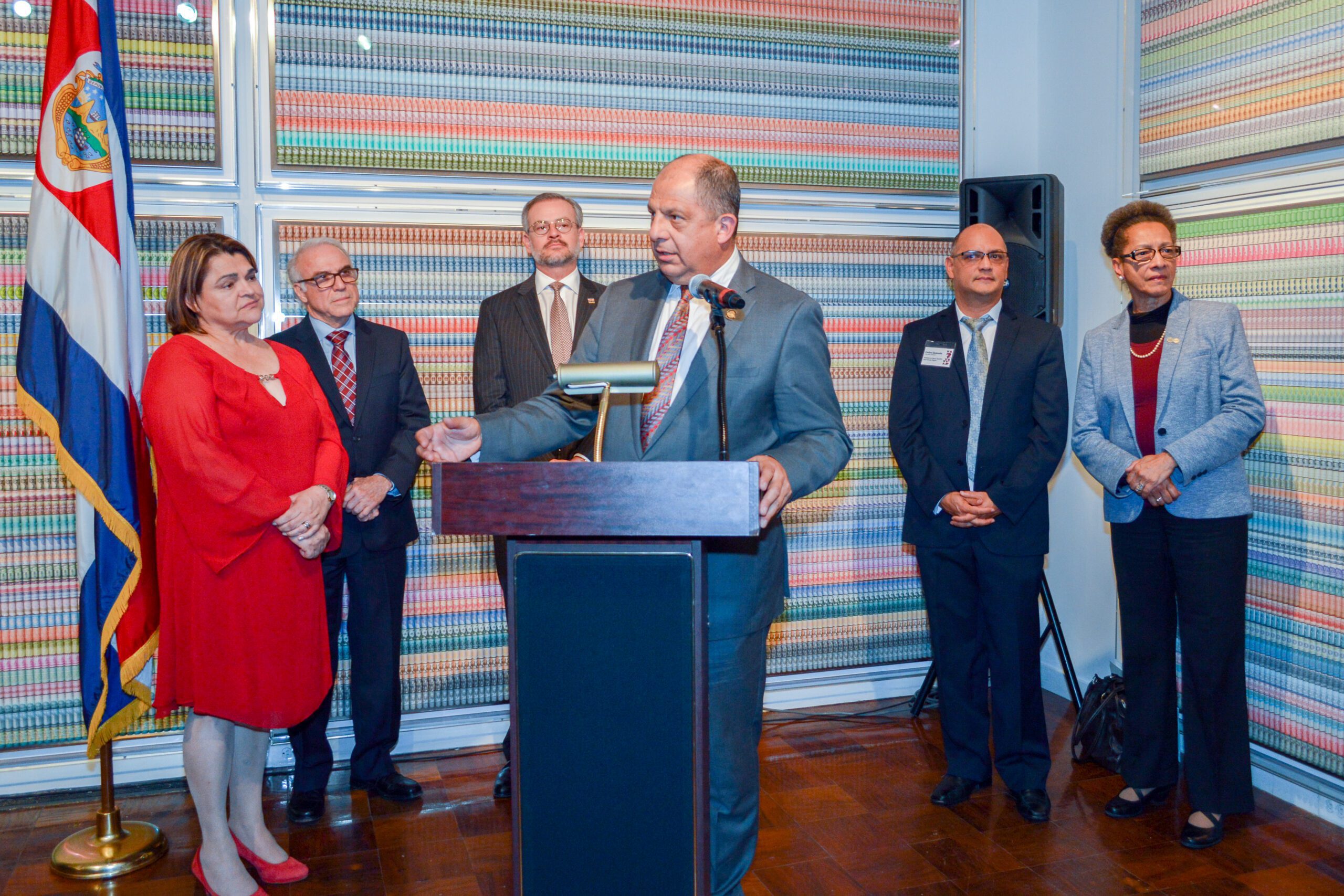The Institute Honors the President of Costa Rica for the Ratification of the Inter-American Convention Against Racism and Racial Discrimination
Washington D.C. March 16, 2017. With the presence of the President of Costa Rica, Luís Guillermo Solís, the Institute on Race, Equality and Human Rights organized an Act of Recognition, […]

Washington D.C. March 16, 2017. With the presence of the President of Costa Rica, Luís Guillermo Solís, the Institute on Race, Equality and Human Rights organized an Act of Recognition, honoring the country for becoming the first in the hemisphere to ratify the Inter-American Convention against Racism, Racial Discrimination and Related Forms of Intolerance in Washington D.C.
The congratulatory event took place at the Art Museum of the Americas. Also in attendance as special guest was Margarette May Macaulay, Inter-American Human Rights Commissioner and Rapporteur on the Rights of Persons of African Descent and against Racial Discrimination.
Carlos Quesada, Executive Director of the Institute, thanked the government of Costa Rica for its leadership in promoting the Convention, adding that the ratification of the Convention culminated a process begun in 2003, when civil society began to advocate for a treaty against discrimination. Quesada said civil society “was thrilled when the government of Costa Rica ratified the Convention,” adding that he “encouraged all member states to ratify the Convention.”
Commissioner Macaulay followed, remarking that it was an historic occasion when she witnessed the ratification of the Convention in Costa Rica. Commissioner Macaulay affirmed that “racial discrimination exists everywhere, and the signing of the Convention means that the time has come to address it.” She added, “Too often those who suffer discrimination cannot express themselves, and those who do suffer from it cannot comprehend it.” Macaulay praised Costa Rica and called on the eleven member states who have signed but not ratified the treaty to “be as brave, strong and incisive as Costa Rica,” and to ratify the treaty “so that all people may live equally.”
President Solís closed the evening’s formal remarks, expressing that he received the honor “with great pleasure and humility.” The President affirmed that “Afro-descendants are an important part of Costa Rica,” and that “we must continue to undertake the greatest possible efforts to eradicate racism.” The President closed his remarks by noting that “this is a great time to hope that the Convention can soon come into force.”
Also in attendance were Ambassadors from several other missions to the Organization of American States, as well as representatives from the OAS itself, the Inter-American Commission, and representatives of civil society based in the United States and throughout the Americas.
The Convention—the most comprehensive anti-discrimination treaty in the Americas—was approved by the Organization of American States in June 2013; with its ratification by Costa Rica on August 5, 2016, the document will enter into legally binding force for its adherents upon its ratification by one more member state of the OAS.
The event sought to highlight this important and historic step taken by the Costa Rican government, and to underscore the importance of the Convention as a crucial tool in the fight against racism and racial discrimination in the Americas. It also sought to help maintain the momentum begun by Costa Rica’s ratification of the Convention in order to promote its widest possible adoption by the countries of the hemisphere.

